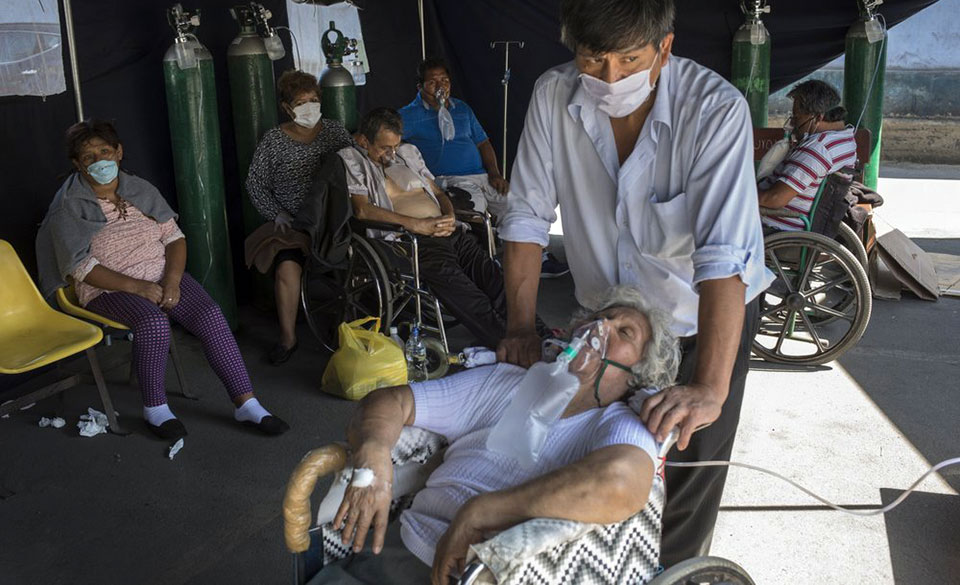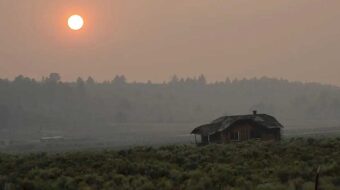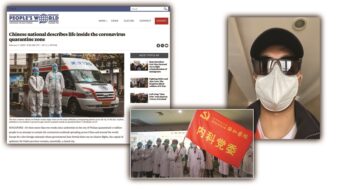
As of July 7, 10,772 people had died of COVID 19 infection in Peru, which is the 8th most severely affected country in the world. The actual toll is assumed to be far greater, especially in Peru’s Amazonian region. Indigenous inhabitants there, isolated from medical care, are vulnerable both to environmental abuses at the hands of oil producers and the pandemic.
Canadian oil company Frontera Energy has operated an oxygen-producing plant at its station in Shiviyacu, located near Peru’s northern border with Ecuador. At a meeting on June 26 with officials of the Ministry of Energy and Mines and those of PetroPeru, the company announced it would no longer produce oxygen there. PetroPeru is the state-owned company whose NorPeruano pipeline conveys Frontier Energy’s crude oil to refineries on the Pacific coast.
For their own purposes, Peru’s metallurgical and mining industries produce most of the oxygen used in Peru. Indigenous activists envision health-care uses for industrial oxygen, particularly for treating COVID 19 infection. They denounced Frontera Energy’s decision as a violation of human rights.
The drama plays out in Block 192, in Loreto department where Frontera Energy enjoys exclusive rights to extract oil. Its efforts account for 20 percent of Peru’s total oil production.
Indigenous communities have been protesting “large exposure to toxic materials and the disproportionate impact on specific groups of the population.” Over the last five years, the company was responsible, allegedly, for at least 80 major oil spills, six of them since February. Indigenous peoples have expressed concern that waste material and toxins will remain after oil extraction ceases and oil companies depart.
In fact, oil reserves in Loreto are almost depleted, and the situation there is volatile. Frontera Energy itself is no rock of stability, having emerged in 2017 out of the post-default reorganization of its predecessor Pacific Exploration & Production. That entity was the former Pacific Rubiales Energy Corporation, notable for reliance on paramilitaries, violations of labor rights, and stock manipulation.
With operations in Colombia Ecuador, Guyana, and Peru, Frontera Energy currently registers a gross annual revenue of $1.68 billion and net income of minus $189 million.
The company is refusing to produce oxygen in Shiviyacu as long as sabotage against oil-production facilities, presumably by Indigenous activists, is continuing. PetroPeru has registered “26 incidents along the aging 1,100 km pipeline since early 2016, with 19 caused by some form of sabotage.” In late 2018, the NorPeruano pipeline and Frontera Energy’s oil wells were temporarily shut down – one of many times – after indigenous groups kidnapped and quickly released 20 oil workers.
Indigenous activists have long demanded that the government take responsibility for the oil company’s abuse of the environment. They’ve blocked roads and met with government and company officials. Along the way, they’ve demanded basic health services for their peoples. A “high-level commission” in November 2017 approved that demand.
Aurelio Chino, president of one of the indigenous federations, in September 2019 complained that, “when we mobilize, they brand us as terrorists, as savages.” Indeed, “We may be natives or indigenous, [but] we are not animals, the government has to understand that.” Mentioning his people’s exposure to heavy metals, as documented in a recent Health Ministry report, Chino called for hospital services and clean-up of oil spills.
Indigenous demonstrators in January 2020 threatened to occupy a pipeline pumping and electrical-generation station in Andoas in Loreto. They eventually did so, and Frontera Energy closed the station on May 1. This was the situation when, on June 21, communities in the same area demanded that Frontera Energy re-open its oxygen-producing plant. They view the pandemic as a “death sentence.”
In refusing, the company demanded that the communities deliver records “with signatures” of their having agreed “to guarantee operations without restrictions or blockades.” Indigenous activists regard the requirement as an attempt “to use the oxygen plant [as a means] to impose control over the communities’ discontent.”
Peru’s extreme shortage of the medical oxygen needed for treating COVID 19 infection compounds the strife. That shortage is a scandal.
In Peru only two companies produce medical oxygen; some is imported from Ecuador. Prices paid by families have risen from $259 to $1,799 per tank. Family members stand in long lines to buy oxygen or refill tanks. A of the Catholic Church and a Spanish actor raised money to fund oxygen generating machines for Loreto.
Metallurgical engineers have called upon Peruvian President Martin Vizcarra to facilitate the use of industrial oxygen for treating COVID 19 infection. Their letter of June 15 expressed regret that the president neglected an earlier letter. They assured him that gas in tanks used by industry contained at least 93 percent oxygen and would suffice as a good way for Peru to respond to the pandemic.
Anarchy is thus playing out in one small Peruvian cockpit. Strife overflows as implacable forces collide. They are a precariously positioned multinational corporation desperate to preserve its assets, communities of victimized indigenous peoples who resist, and globalized capitalism that places wealth accumulation above basic human needs.
The capitalist Peruvian state is in shambles. It didn’t prepare to meet the pandemic and long ago cast its population adrift. The situations of Cuba and Vietnam are different. Those socialist nations protected their populations from “CoronaShock,” as documented here.












Comments